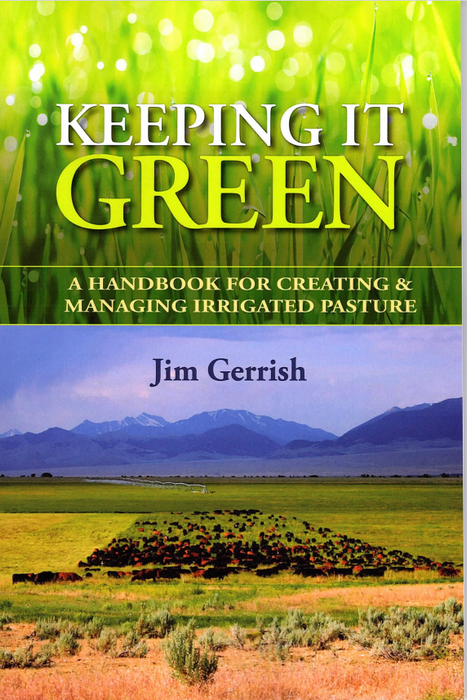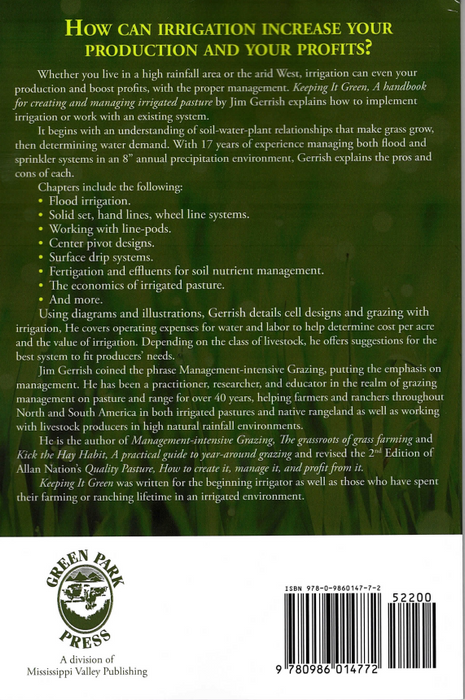KEEPING IT GREEN, A HANDBOOK FOR CREATING AND MANAGING IRRIGATED PASTURE
How Can Irrigation Increase Your Production and Your Profits?
Whether you live in a high rainfall area or the arid West, irrigation can even your production and boost profits, with the proper management. Keeping It Green, A Handbook for Creating and Managing Irrigated Pasture by Jim Gerrish explains how to implement irrigation or work with an existing system.
It begins with an understanding of soil-water-plant relationships that make grass grow, then determining water demand. With 17 years of experience managing both flood and sprinkler systems in an 8" annual precipitation environment, Gerrish explains the pros and cons of each.
Chapters include the following:
- Flood irrigation.
- Solid set, hand lines, wheel line systems.
- Working with line-pods.
- Center pivot designs.
- Surface drip systems.
- Fertigation and effluents for soil nutrient management.
- The economics of irrigated pasture.
- And more.
Using diagrams and illustrations, Gerrish details cell designs and grazing with irrigation. He covers operating expenses for water and labor to help determine cost per acre and the value of irrigation. Depending on the class of livestock, he offers suggestions for the best system to fit producers' needs.
Jim Gerrish coined the phrase Management-intensive Grazing, putting the emphasis on management. He has been a practitioner, researcher, and educator in the realm of grazing management on pasture and range for over 40 years, helping farmers and ranchers throughout North and South America in both irrigated pastures and native rangeland as well as working with livestock producers in high natural rainfall environments.
He is the author of Management-intensive Grazing, The Grassroots of Grass Farming and Kick the Hay Habit, A Practical Guide to Year-Around Grazing and revised the 2nd Edition of Allan Nation's Quality Pasture, How to Create It, Manage It and Profit From It.
Keeping It Green was written for the beginning irrigator as well as those who have spent their farming or ranching lifetime in an irrigated environment.

